Watermelon, the sweet, crowd-pleasing fruit perfect for the 4th of July and backyard barbeques, made its way into health circles over the past few years. Touted as an ingredient for detox water and a low-calorie snack, believers praise watermelon as one of the best fruits for weight loss, but is it?
The original watermelons were much less sweet than the common varieties we recognize today, cultivated approximately 2000 years later in the Mediterranean. The fruit’s high water content (about 92%), coupled with its natural sweetness, make it a refreshing treat for those with a sweet tooth, but is it really a weight loss superfood?
This article will explore the basis of the watermelon diet, its possible benefits and limitations, and offer a few tips for incorporating watermelon into a healthy diet.
{{mid-cta}}
The Watermelon Diet Explained
The watermelon diet more closely resembles a cleanse rather than an actual diet plan. The creators of the watermelon diet are unknown, and there are different variations of the diet circulating online.
The general guidelines for the watermelon diet suggest eating only watermelon for three days (some also include watermelon juice). Advocates say the benefits of watermelon will help you lose weight fast, and after three days, you can return to your normal eating habits.
It might sound appealing at first; who wouldn’t want to only eat fruit all day? In reality, only eating watermelon leaves a large gap in your nutritional needs, and it’s really just another fad diet. Plus, your calorie intake will be so low you’ll likely end up with cravings, overeat, and immediately gain back any lost weight.
This pink and green fruit is rich in nutrients and essential vitamins but doesn’t offer protein and is considered low in fiber.
Does the Watermelon Diet Work?
The marketing around the watermelon diet promises rapid weight loss. But the science to back up these claims doesn’t exist, and any weight you lose is likely just water weight, not true body mass.
Prescriptive and rigid diets, like the watermelon diet, are packaged nicely and make weight loss look easy. Although the thought of simply eating cups of watermelon for three days and getting amazing results is appealing, sustainable weight loss doesn’t work that way.Long-lasting results require you to make a long-term commitment to your health and your goals. Keep educating yourself (or meet with a dietitian) on the impact of proper nutrition, and you will increase your chances of experiencing long-term results—you can do this!
Benefits of Watermelon
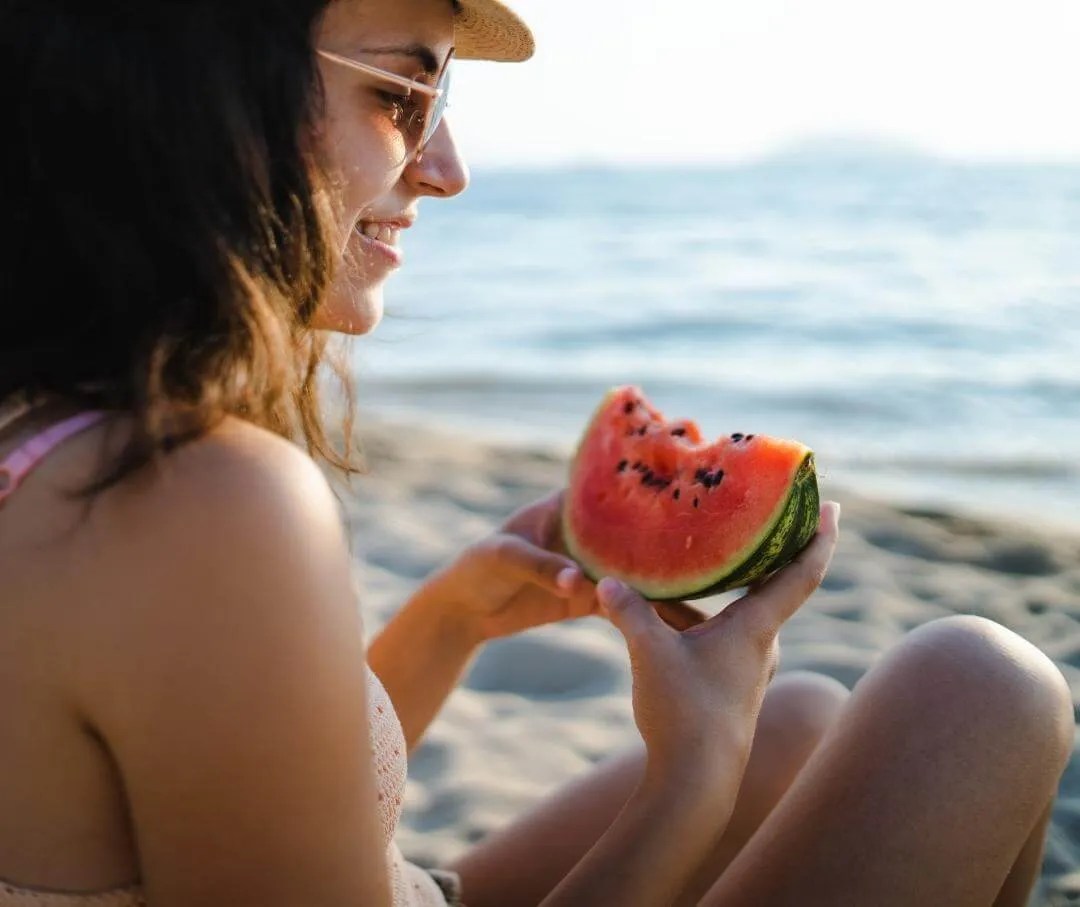
The nutrients in watermelon provide health benefits beyond weight loss. Many people do not know that all parts of the watermelon are edible. The pink interior is the easiest to eat, but you can also eat seeds and even the rind.
Essential nutrients found in watermelon include:
- Vitamin C
- Vitamin A
- Lycopene
- Water (of course!)
Vitamin C is an antioxidant that supports your immune system and is a vital precursor to collagen synthesis, which helps you maintain healthy, glowing skin.
Vitamin A is a fat-soluble vitamin, meaning that it is best absorbed when combined with a little bit of healthy fat. It helps maintain healthy vision, promotes healthy cell growth, and is also an active player in your immune system.
Lycopene is another type of antioxidant that can help manage blood pressure, improve serum lipid levels, and decrease inflammation. Lycopene is also present in tomatoes, but researchers are still studying if the lycopene in watermelon can help support your health in these areas.
Watermelon is also one of the best sources of citrulline, an amino acid precursor the body uses to make arginine. Arginine is an essential amino acid important for cardiovascular health.
<p class="pro-tip"><strong>Also Read: </strong><a href="watermelon-glycemic-index">Watermelon Glycemic Index: Does It Spike Blood Sugar?</a>.</p>
How Eating Watermelon Can Support Healthy Weight Loss
Watermelon can fit into your healthy weight loss journey, but it shouldn’t be the only thing you eat!
Watermelon is a low-calorie food. One slice (which is approximately 1/16th of a watermelon) is quite low, with only 86 calories.2
Watermelon has a high water content and is hydrating. It is a great way to quench your thirst without relying on flavored or sweetened beverages.
The Glycemic Index of Watermelon
Previous to 2021, researchers clocked the glycemic index (GI) fruit of watermelon to be high (scoring above >70). Classically, a high GI food is expected to have a greater impact on your blood sugar—also called glycemic response.
In 2021, the University of Sydney published a new GI score for watermelon of 50, bringing the final GI ranking into the low range. Other low-GI include apples, red grapefruits, and green bananas.
The new GI was calculated by using an average score of four popular types of watermelon sold across the globe. In the US, the GI of watermelon is ranked at 72.
In America and Australia, the guidelines surrounding watermelon are positive! Both countries suggest including watermelon in moderation and adding variety to your diet by including other fruits as well.
How to Include Watermelon in Your Diet

Adding more watermelon to your diet is easy because it tastes good and is so easy to prepare. Here are a few creative and delicious ways to eat more:
- Dice watermelon and add to the top of a smoothie or yogurt
- Add watermelon chunks to a salad with red onion, mint, and feta
- Throw frozen watermelon into your smoothie for extra slush
- Add to your post-workout protein snack for hydration and carbohydrates
- Grill watermelon for a fun, summery side
- Use watermelon in place of tomatoes in salsa
- Sprinkle with chili powder to add heat and smokiness to your snack
- Save watermelon seeds and roast them in the oven
What Is the Risk of Eating Too Much Watermelon?
Too much watermelon can leave you uncomfortable with bloating and sometimes diarrhea. People who are sensitive to fructose are even more prone to these side effects, and they should be mindful of their watermelon intake.
Watermelon is high in potassium, which can raise serum potassium levels; this condition is called hyperkalemia. People suffering from kidney disease are at high risk for elevated potassium levels and need to be careful.
High potassium in your blood can result in irregular heartbeats and, in certain circumstances, can be life-threatening. Your medical team will advise you if you need to monitor or reduce your potassium intake.
The USDA food database recognizes one serving of watermelon to be approximately 280g (about 1/16th of a watermelon).2 A healthy adult can safely eat 1-2 servings of watermelon per day.
Is Watermelon Good for You?
In general, watermelon is good for you, offering a nutritious and hydrating fruit that contains many beneficial vitamins, minerals, and antioxidants. A few groups of people may want to limit their watermelon intake, primarily those with food allergies or sensitivities where watermelon causes symptoms.
Even though watermelon is a low GI fruit, it can still raise blood sugar levels for people with blood sugar dysregulation. Learning your personal metabolic response to carbs like watermelon can help you understand if it's a good choice for you.
5 Fruits That Can Help You Lose Weight
All fruits can fit within the framework of a healthy diet to support weight loss goals. In addition to watermelon, here are six other low-calorie fruit options that can help weight loss:
- Berries: Raspberries, strawberries, blueberries, and blackberries are all low in calories and high in antioxidants.
- Grapefruit: Another fruit considered beneficial for weight loss, grapefruit is low in calories and high in fiber.
- Apples: A medium-sized apple contains less than 100 calories and offers fiber to help keep you full.
- Papaya: This tropical fruit contains vitamin C and a natural enzyme that aids digestion.
- Melon: Cantaloupe and honeydew are both low-calorie options that provide hydration and fiber.
Using a CGM with Signos: Real-Time Data, Backed by AI
Signos pairs a real-time glucose biosensor with AI trained on tens of millions of data points to deliver personalized, science-backed guidance for weight management and health. See exactly how your body responds, and take action.
Learn how it works. Ready to get started? Join now.
<p class="pro-tip"><strong>Learn about: </strong><a href="/blog/cgm-data-weight-loss">Using CGM Data to Crack the Weight Loss Code</a></p>
Topics discussed in this article:
References
- Paris H. S. (2015). Origin and emergence of the sweet dessert watermelon, Citrullus lanatus. Annals of botany, 116(2), 133–148. https://doi.org/10.1093/aob/mcv077
- U.S. Department of Agriculture, Agricultural Research Service, FoodData Central (2019). Watermelon, Raw. Retrieved June 9, 2022, from: https://fdc.nal.usda.gov/fdc-app.html#/food-details/167765/nutrients
- Carr, A. C., & Maggini, S. (2017). Vitamin C and Immune Function. Nutrients, 9(11), 1211. https://doi.org/10.3390/nu9111211
- Sauberlich H. E. (1994). Pharmacology of vitamin C. Annual review of nutrition, 14, 371–391. https://doi.org/10.1146/annurev.nu.14.070194.002103
- Dawson M. I. (2000). The importance of vitamin A in nutrition. Current pharmaceutical design, 6(3), 311–325. https://doi.org/10.2174/1381612003401190
- Khan, U. M., Sevindik, M., Zarrabi, A., Nami, M., Ozdemir, B., Kaplan, D. N., Selamoglu, Z., Hasan, M., Kumar, M., Alshehri, M. M., & Sharifi-Rad, J. (2021). Lycopene: Food Sources, Biological Activities, and Human Health Benefits. Oxidative medicine and cellular longevity, 2021, 2713511. https://doi.org/10.1155/2021/2713511
- Naz, A., Butt, M. S., Sultan, M. T., Qayyum, M. M., & Niaz, R. S. (2014). Watermelon lycopene and allied health claims. EXCLI journal, 13, 650–660. Retrieved June 9, 2022, from: https://www.ncbi.nlm.nih.gov/pmc/articles/PMC4464475/
- U.S. Department of Agriculture, Agricultural Research Service, FoodData Central (2019). Seeds, watermelon seed kernels, dried. Retrieved June 9, 2022, from: https://fdc.nal.usda.gov/fdc-app.html#/food-details/169407/nutrients
- Kaye Foster-Powell, Susanna HA Holt, Janette C Brand-Miller, International table of glycemic index and glycemic load values: 2002, The American Journal of Clinical Nutrition, Volume 76, Issue 1, July 2002, Pages 5–56, https://doi.org/10.1093/ajcn/76.1.5
- Atkinson, F.S., Brand-Miller, J.C., Foster-Powell, K., Buyken, A.E., & Goletzke, J. (2021) International tables of glycemic index and glycemic load values 2021: a systematic review. The American Journal of Clinical Nutrition, 114(5), 1625–1632. https://doi.org/10.1093/ajcn/nqab233
- Fedewa, A., & Rao, S. S. (2014). Dietary fructose intolerance, fructan intolerance and FODMAPs. Current gastroenterology reports, 16(1), 370. https://doi.org/10.1007/s11894-013-0370-0
- Montford, J. R., & Linas, S. (2017). How Dangerous Is Hyperkalemia?. Journal of the American Society of Nephrology : JASN, 28(11), 3155–3165. https://doi.org/10.1681/ASN.2016121344


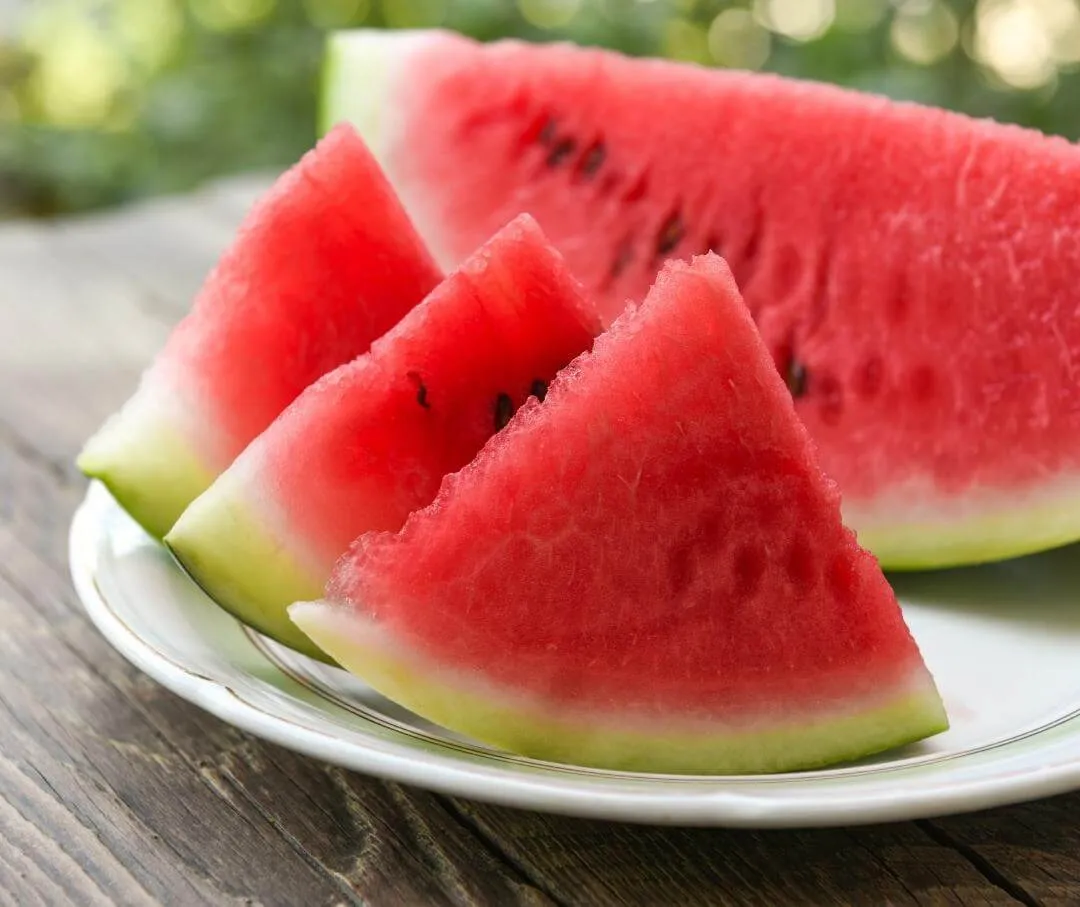

.svg)



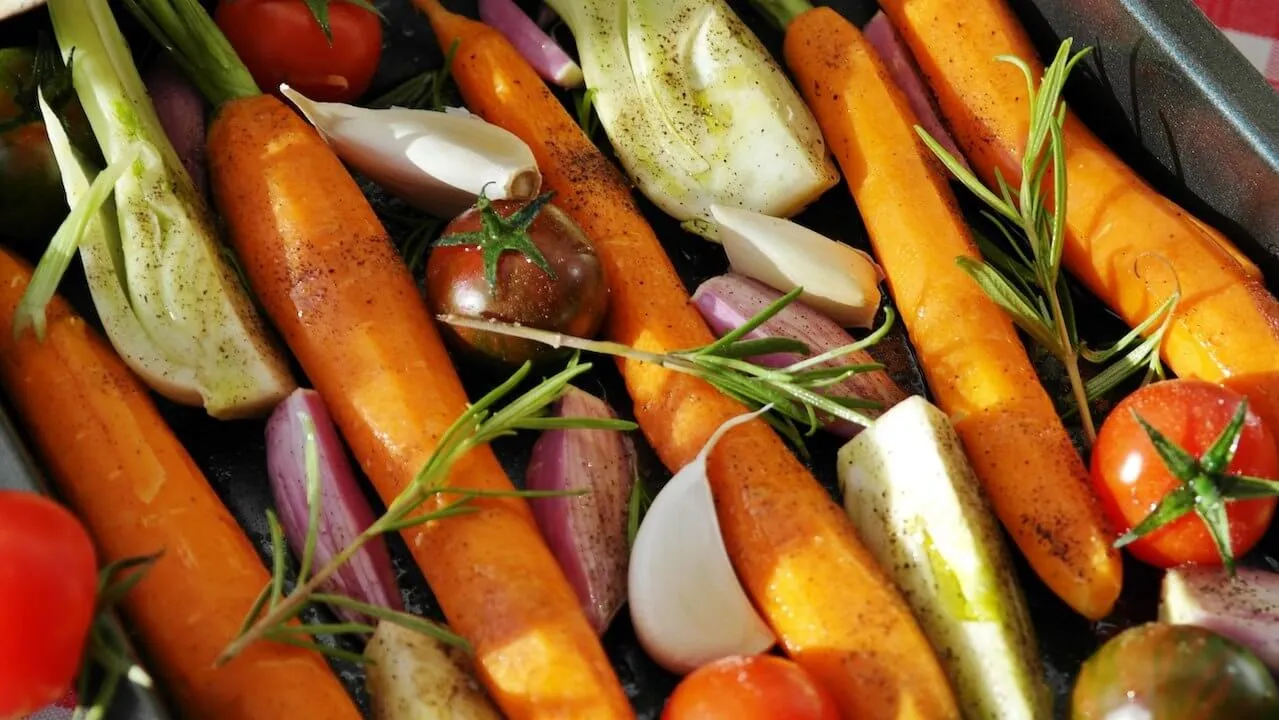
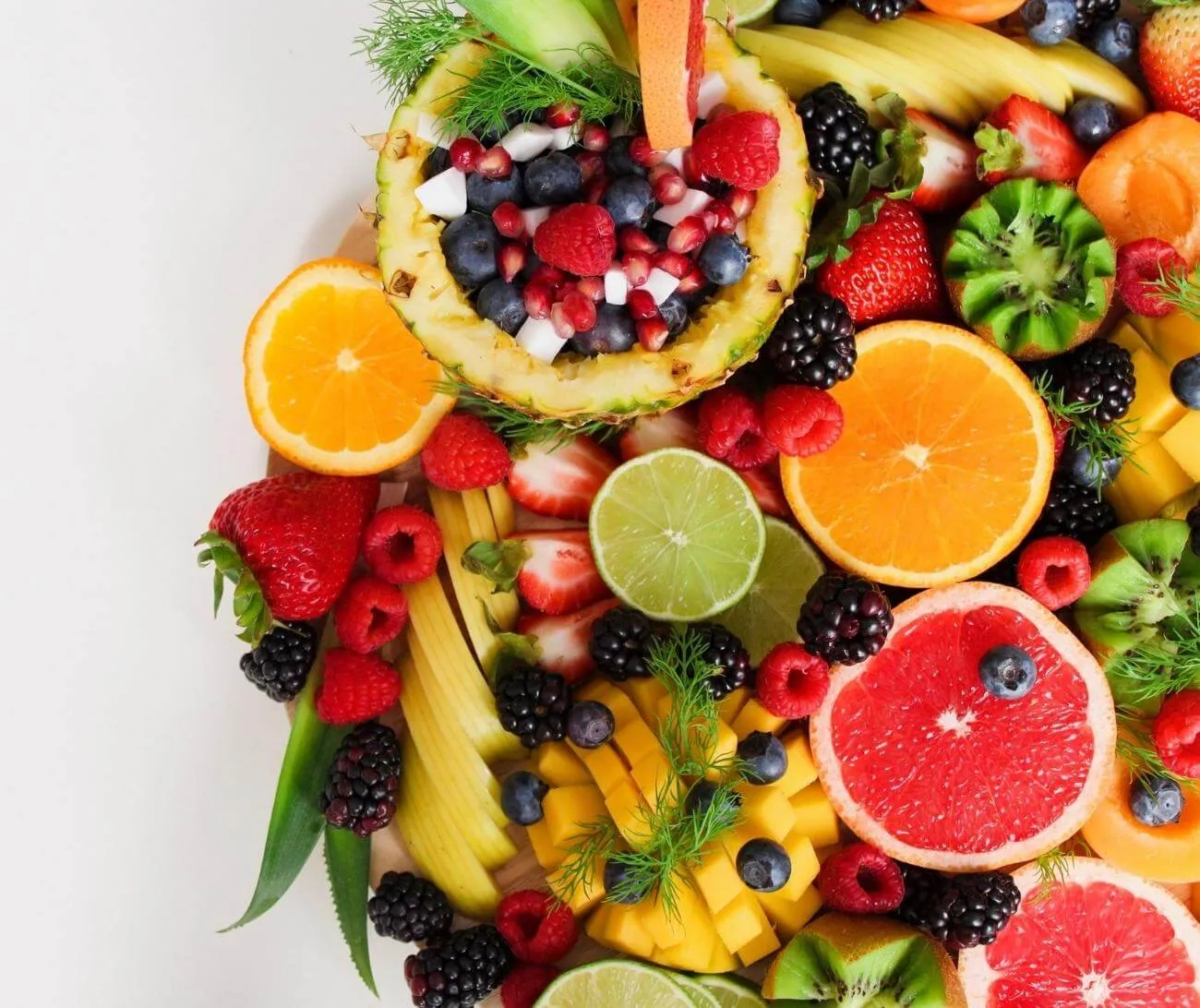
.webp)

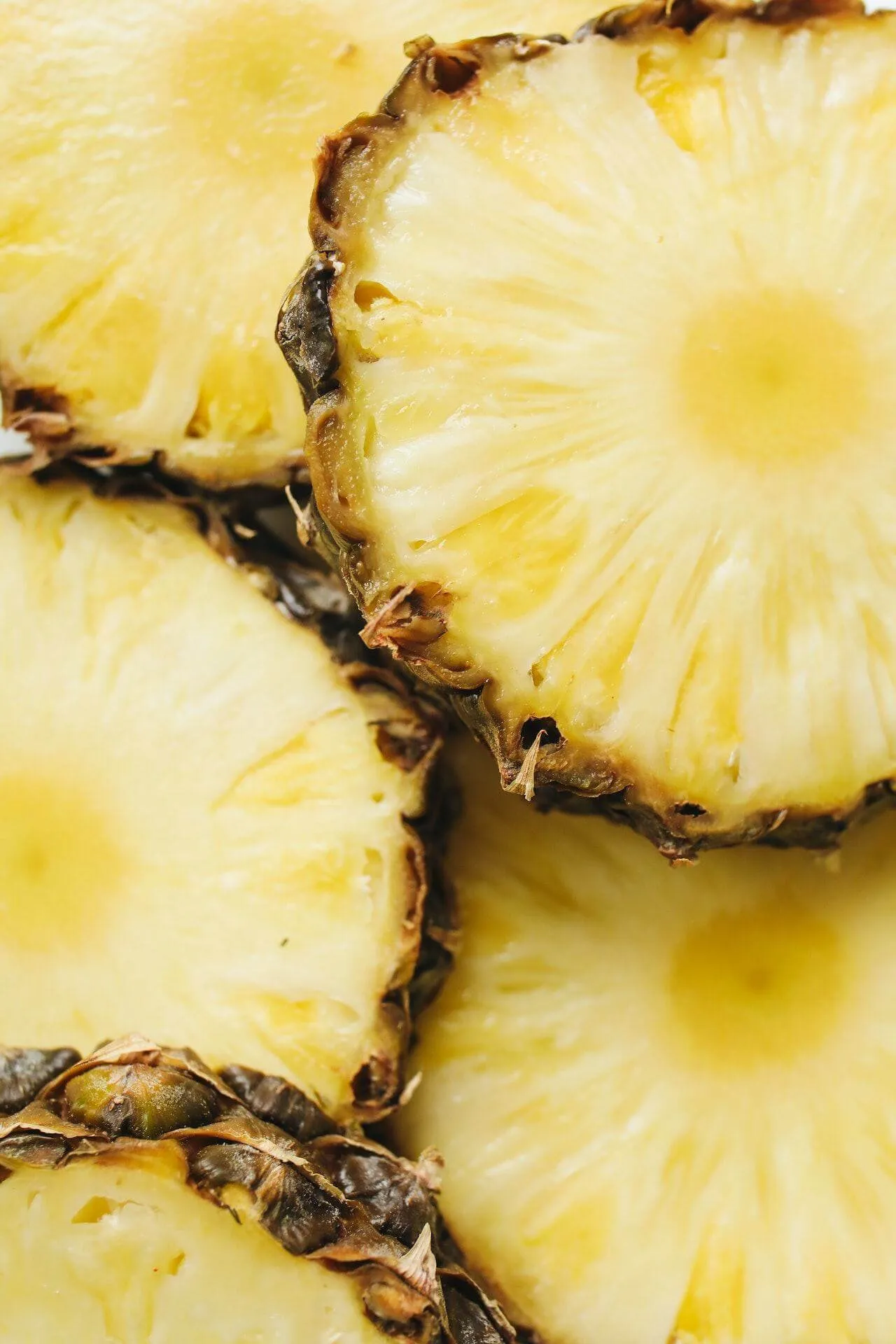
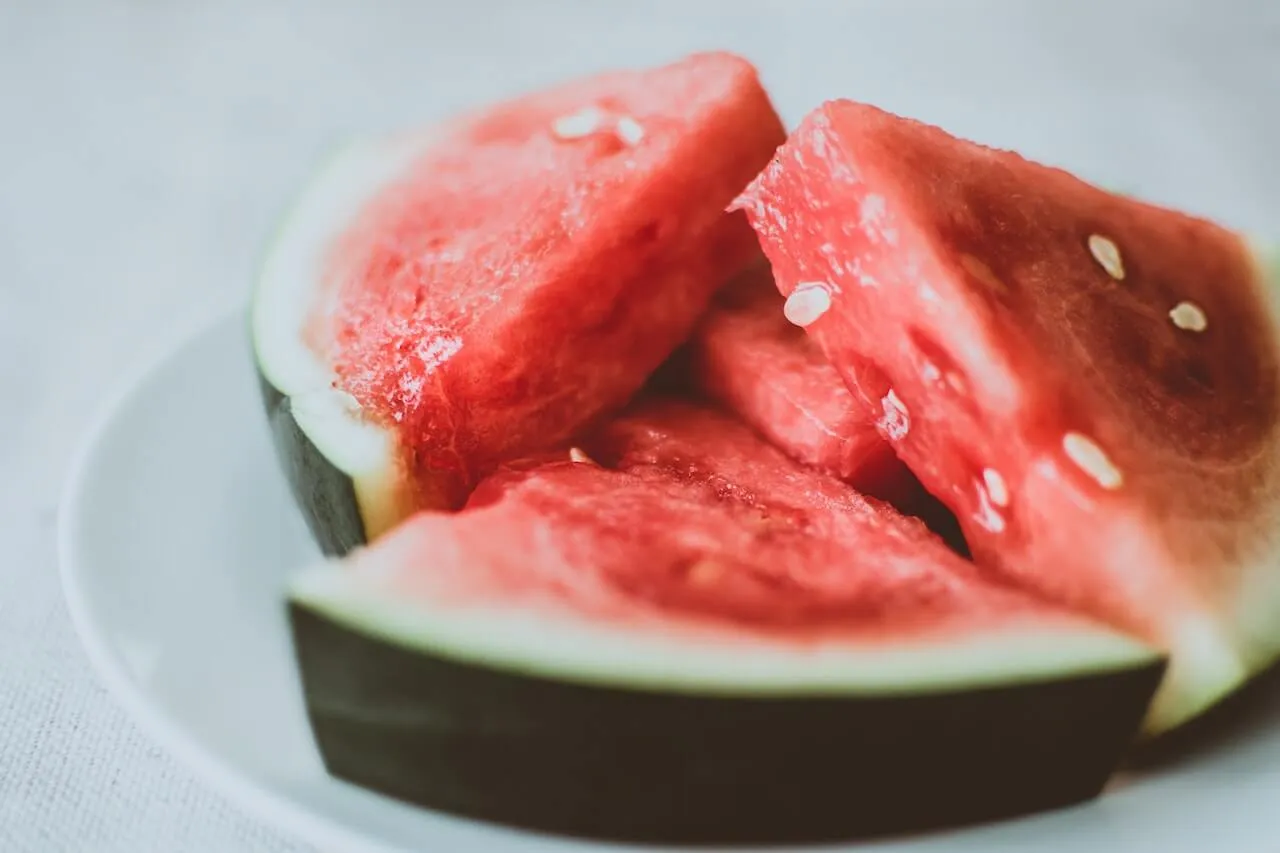

.svg)
.svg)
.svg)
.svg)
.svg)
.svg)
.svg)
